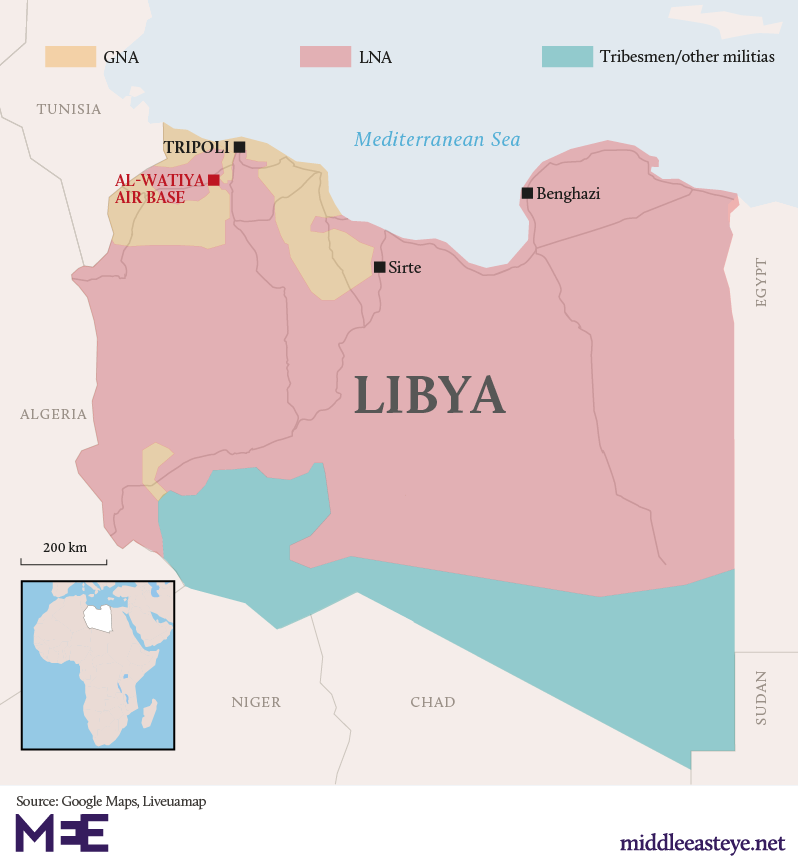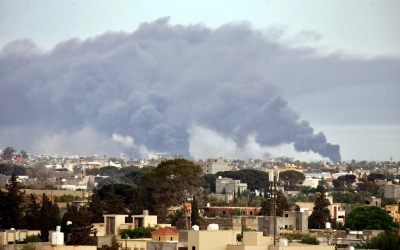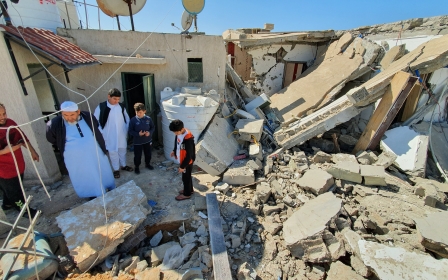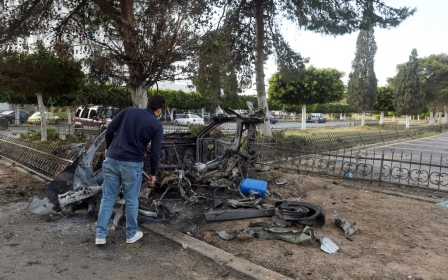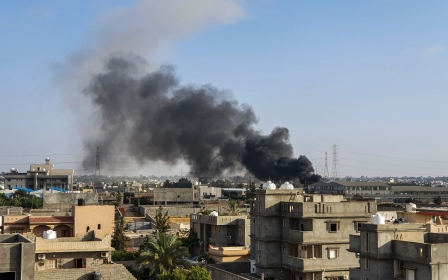Libya's GNA captures key air base in major advance against Haftar
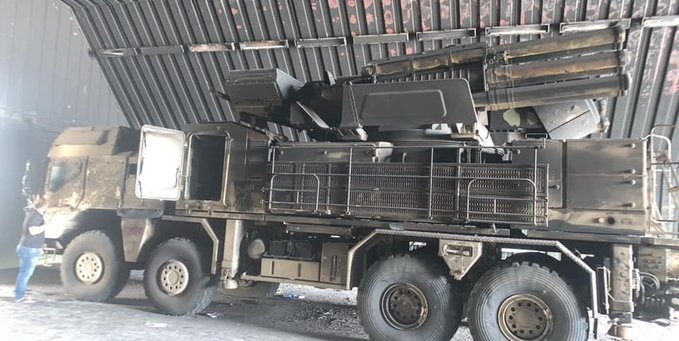
Forces loyal to Libya's internationally recognised government captured the strategic al-Watiya air base from fighters loyal to eastern commander Khalifa Haftar on Monday, in what could be the most major advance for nearly a year.
"We proudly announce the liberation of al-Watiya air base from criminal militias and terrorist mercenaries," Prime Minister Fayez al-Sarraj said on Twitter.
"Today's victory will not be the end of the battle. Instead, it brings us closer to the big victory day, the day all cities and territories of Libya are free from the project of hegemony and repression."
Al-Watiya air base, some 125km southwest from the capital, had been an important strategic foothold for Haftar's forces, which launched an offensive to capture Tripoli in April 2019.
New MEE newsletter: Jerusalem Dispatch
Sign up to get the latest insights and analysis on Israel-Palestine, alongside Turkey Unpacked and other MEE newsletters
Footage posted on social media appeared to show forces loyal to the Government of National Accord (GNA) driving down runways at the base unhindered.
There was no immediate comment from Haftar's Libyan National Army (LNA), though LNA military sources confirmed to Reuters that they had withdrawn after the base had come under intensive bombardment.
The GNA forces also posted images of what they said was a captured Russian-made Pantsir air defence system mounted on a truck at the base, as well as an operating manual in Arabic.
A separate video circulating online and in Turkey's media purported to show a Turkish drone, which support the GNA from the air, targeting a Pantsir system as it was being transported by road in the early hours of Monday.
GNA forces said it was the third they had hit in two days. The video could not be independently verified and the LNA has in recent days denied at least one other GNA claim it had struck a Pantsir.
Increased Turkish influence
Claudia Gazzini, Libya analyst for the International Crisis Group, said that the GNA's control of al-Watiya will effectively mean "increased penetration of Turkish influence in western Libya."
"For the GNA, undoubtedly keeping control of al-Watiya would be a huge success," she told Middle East Eye.
"But we could also see the threat of potential Turkish use of such base for long-term consolidation of authority. This is something that neighbouring states might not be comfortable with."
"It also risks triggering an air war with Haftar's backers, who do not like the prospect of Turkey gaining control of the base," she added, referring to the United Arab Emirates and Egypt.
Gazzini pointed out that after al-Watiya, the next Haftar strongholds to be under threat from GNA would now be Tarhouna and Bani Walid.
Since the ousting of longtime ruler Muammar Gaddafi in 2011, oil-rich Libya has been mired in conflict between the two rival administrations of the GNA in the west and the Haftar-backed government in the east.
Hafar's LNA launched an offensive 13 months ago to capture GNA-held Tripoli. However, it ground to a halt despite backing from Egypt, the UAE and Russia.
The GNA, meanwhile, is materially backed by Turkey. In January, Ankara deployed advisers, Syrian fighters and equipment to help defend the capital and appears to have stemmed the tide of Haftar's assault.
Turkish backing has in recent weeks seen the GNA force the LNA onto the back foot, pushing it out of a string of towns west of Tripoli and putting it under pressure in its northwestern strongholds of Tarhouna and the al-Watiya airbase.
Haftar's forces lost Gharyan, its main forward base south of Tripoli, in its biggest reversal to date in June 2019, but continues to control Tarhouna, southeast of the capital.
The fighting in and around Tripoli has added to terrible conditions for residents, who have been enduring lengthy cuts to power and water supplies during a fierce spike in temperatures.
According to the UN, four-fifths of civilian casualties during the first three months of 2020 were attributable to the LNA.
Middle East Eye delivers independent and unrivalled coverage and analysis of the Middle East, North Africa and beyond. To learn more about republishing this content and the associated fees, please fill out this form. More about MEE can be found here.


